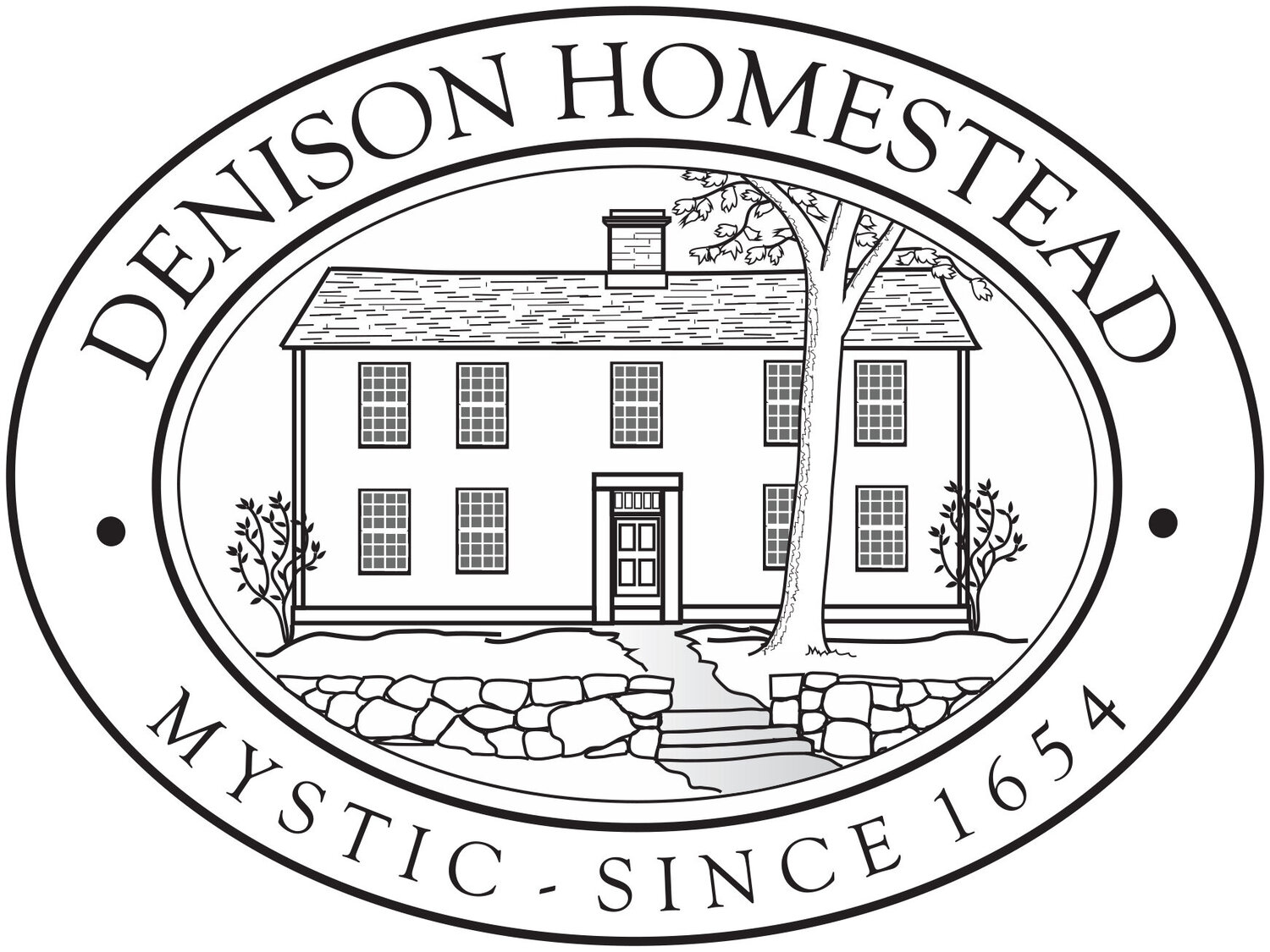The Colonial Herb Garden at the Denison Homestead
Welcome to the Denison Colonial Herb Garden!
This guide provides you, the visitor, with information on each of the plants grown in the Colonial Herb Garden at the Denison Homestead. Within this small plot we have approximately 70 herbs growing at any one time. You will find plant identification tags on site. There may be more than one plant of a species in the garden, but at least one will be tagged. This brochure contains a brief description of each plant, its historic uses, and a corresponding photograph. Our goal is to provide you with an educational and entertaining experience, allowing you to travel through the garden at your own speed, and with your own level of interest.
The Colonial Herb Garden is designed to reflect herbal plant usage in the 1700s. No original documentation about this garden survives; as such, our garden is meant to be representational and not an actual reproduction. Exactly what was grown, in what volume and for which uses we can only guess. The garden contains those plants that appear in the historic literature with regularity.
The Denison family had been living on this parcel of land since 1654. By 1717 they were residing in their third and final structure, the house you see standing here today. This garden would have been tended by Lucy Denison, who married George Denison, grandson of Captain George, in 1717, and raised 9 children here. Lucy would have overseen every aspect of the household including cooking, cleaning, weaving and dyeing, child care, and the day-to-day health of her family. She would have received help with these tasks from her children, particularly her elder daughters.
Colonial Herb Garden may have included some vegetables and a few fruit trees, but its focus was on herbs that were used in everyday life. In any given season, the garden probably held up to 40 different species that were used to season meats, dye cloth, or treat a common ailment. The Garden is likely a fraction the size of that relied on in the 1700s, as it takes significant quantities of plant material – roots, leaves, flower - to make dye baths, medicinal poultices and tinctures, and strewing bundles.
When the Denison family first colonized this plot, population numbers were low; their nearest neighbors were miles away, and doctors were few and not called upon for many of the ailments that plagued people. These households needed to be fully self-sufficient as there were no grocery stores, pharmacies or dress shops to pop down to. Shipments from England and Europe were an important source for plant material, tools, books and the like, but were infrequent.
The health problems that were frequently addressed reflect the harshness of their lives, the remoteness of their homesteads, and the new foodstuffs that made up their diet. Yet they survived and thrived, in no small part to the diligence of Lucy Denison and her descendants.
We hope that you enjoy your stroll through our gardens. Click on the link below for the Guide to the Colonial Herb Garden at the Denison Homestead.
GUIDE TO THE COLONIAL HERB GARDEN AT THE DENISON HOMESTEAD
Support the Denison Homestead Gardens!
Become a Garden Volunteer - As our gardens continue to grow, we realized we needed more help keeping the gardens looking beautiful all season. If you’re searching for a place to volunteer this year, our group of garden volunteers might be the answer. Working with our gardener Nancy Feinstein, the volunteers will help prepare the spring garden beds, put down compost and mulch, as well as assist with watering and weeding. If interested in becoming one of our “Garden Volunteers,” please contact us at info@denisonhomestead.org or phone the Homestead 860-536-9248.
Sponsor a Plant - Help fund garden improvements and seasonal maintenance of the Homestead Gardens by sponsoring a plant! With the help of donations through our Sponsor a Plant Fundraiser, we upgraded our colonial herb garden plant identification tags with professional museum quality tags.
Help the Denison Homestead maintain the beautiful Homestead gardens all year long by sponsoring a plant. Your sponsorship helps with the cost of permanent plant identification tags, mulch, compost and other gardening needs.


